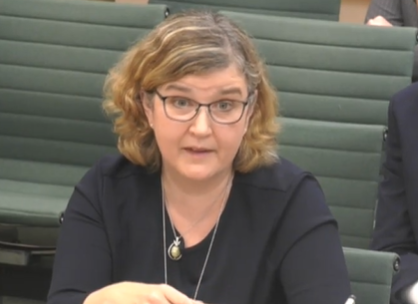Home Office spends £1.2m a day housing asylum seekers and Afghan refugees in hotels
More than £438m a year spent accommodating 37,000 individuals who have been evacuated from Afghanistan or are claiming asylum in the UK - which charities brand ‘failed strategy’

Your support helps us to tell the story
From reproductive rights to climate change to Big Tech, The Independent is on the ground when the story is developing. Whether it's investigating the financials of Elon Musk's pro-Trump PAC or producing our latest documentary, 'The A Word', which shines a light on the American women fighting for reproductive rights, we know how important it is to parse out the facts from the messaging.
At such a critical moment in US history, we need reporters on the ground. Your donation allows us to keep sending journalists to speak to both sides of the story.
The Independent is trusted by Americans across the entire political spectrum. And unlike many other quality news outlets, we choose not to lock Americans out of our reporting and analysis with paywalls. We believe quality journalism should be available to everyone, paid for by those who can afford it.
Your support makes all the difference.UPDATE 3 February 2022: The Home Office issued a correction one day after the meeting of the Home Affairs Select Committee referred to in this article, in which it acknowledged that the daily cost of housing asylum seekers and Afghan refugees in hotels is £4.7m, nearly four times the amount quoted here. The figure cited by second permanent secretary Tricia Hayes, of £1.2m, referred only to individuals who have been evacuated from Afghanistan. Read the full story here
The government is spending £1.2m a day on housing asylum seekers and Afghan refugees in hotels, it has emerged.
More than £438m a year is being spent accommodating about 37,000 individuals who have been evacuated from Afghanistan or are claiming asylum in the UK, a Home Office official has admitted.
Speaking to MPs on Wednesday, the department’s second permanent secretary, Tricia Hayes, said the costs were “now racking up at about £1.2m every single day”.
About 25,000 asylum seekers are currently being held in hotels across the UK, as well as 12,000 Afghan nationals who were evacuated to Britain following the Taliban takeover in August 2021.
The number of asylum seekers placed in hotels has racked up in the past two years as the pandemic has led to mounting delays in the asylum system and the government has failed to secure enough dispersal housing across the country.
A report by the Refugee Council last May revealed that asylum seekers in hotels were being left without adequate shoes, clothing, food and healthcare, in what was condemned as “dehumanising” treatment.
Maddie Harris, the director of Human for Rights Network, which is supporting many of those in hotels, said: “At huge expense to the taxpayer and to the health and wellbeing of tens of thousands of asylum seekers, private contractors are profiting from Home Office contracts to provide accommodation that is frequently unsafe, Covid-insecure and causes immense harm to the mental health of those living there.
“For 18 months, we have heard from hundreds of people that their children’s development is affected by months spent in overcrowded hotels with nowhere to play, how people have repeatedly gone without medical care as hotel staff block access, and that people are terrified to speak out about these and many other appalling experiences in these hotels.”
Meanwhile, following Operation Pitting, the mass evacuation of Kabul in August, the Home Office placed thousands of Afghans in hotels, and has since only been able to find homes for about 4,000.
It emerged last September that thousands would be held in hotels for an indefinite period, with local councils saying they have been left “in the dark” about how they can help. The lack of clarity is said to be causing “unnecessary worrying and anxiety” to Afghans.
Enver Solomon, the chief executive of the Refugee Council, said housing people in hotels was a “failed strategy that comes at an astronomical cost to the taxpayer.”
“We want to work with government to urgently support people into suitable housing so they can start to rebuild their lives. This is about finding an effective solution that supports people, including granting them the right to work, not about quick fixes that make their lives even worse,” he said.
When asked during an evidence session with the Home Affairs Select Committee what support local councils receive when they offer homes for asylum seekers, Ms Hayes said the department was doing “a lot of work” to develop “new ways” of cooperating with councils.
She said this work “recognises the financial as well as policy imperative of cutting the costs that we’re currently incurring in hotels, which [are] now racking up at about £1.2m every single day”.
“We’re optimistic that we’re going to be able to broker a new way of working with local government on how we manage these costs,” she added.
The home secretary, Priti Patel, told MPs that housing people in hotels was a “thoroughly inadequate policy”, and she confirmed that the Home Office was working with the Ministry of Defence (MoD) to find “alternative sites and accommodation” to house asylum seekers.
“It is not something that we want, and this is part of the reason that there is a lot of wider work taking place on asylum accommodation [...] We are looking at dispersed accommodation, first and foremost, and we are looking at working with our partners in MoD on alternative sites and accommodation,” she said.
Join our commenting forum
Join thought-provoking conversations, follow other Independent readers and see their replies
Comments